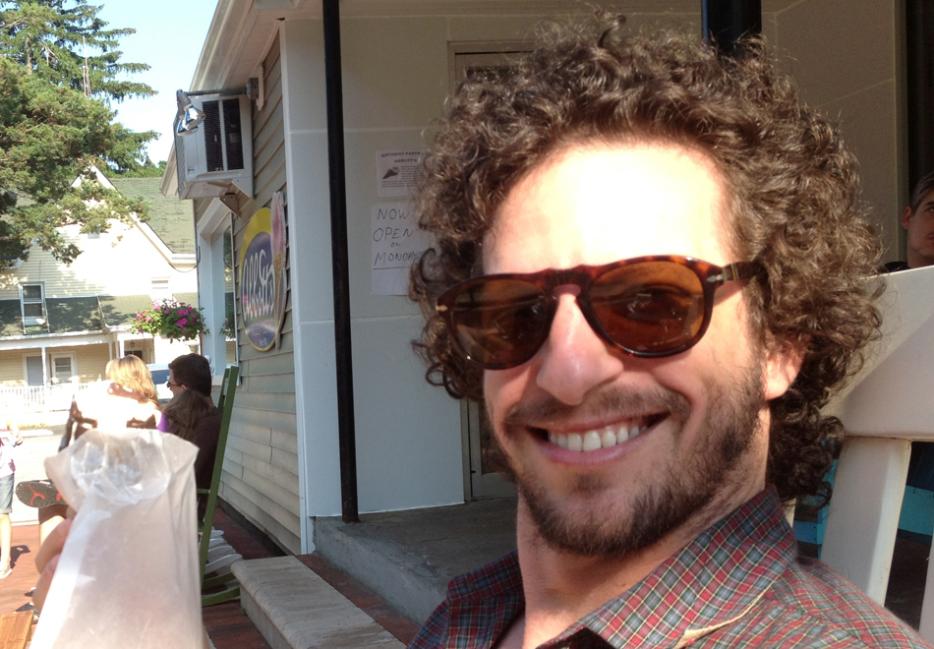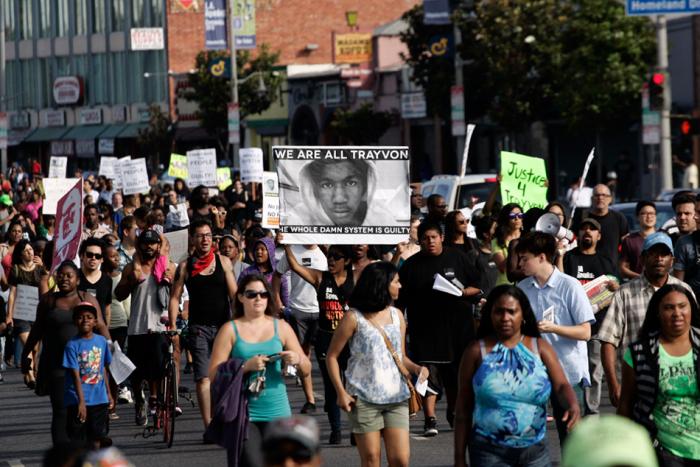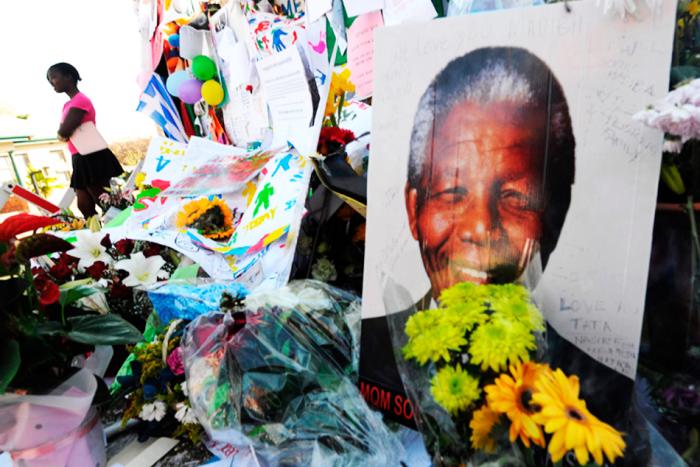This American Life is airing its 500th episode this week. To note the occasion, we’re profiling three of the show’s most notable contributors. Next up, Josh Bearman.
He may not be the best-known contributor to the show, but all of his stories have become immediate classics, including an hour-long investigation into a reality television show about MILF private investigators that was a front for drug-running, or the tale of a union of Santa Clauses that descended into an all-out civil war. Recently, he’s become more focused on films—one of his Wired magazine stories became the movie Argo last year, and he has several others in development.
Chris Berube: Let’s talk about Santas. On a nuts and bolts level, almost every writer would want to ask, where did you find that?
Josh Bearman: Literally, I was poking around on the Internet. I saw there was a Santa union. And then I went on this website, and went “ah, that’s weird.“ I saw they had an office, in Orange County or something. I thought, that’s a cool story for LA Weekly—this was years ago when I worked there. I put it in my file, and then I went back to the website months later. In the meantime, something had clearly happened to dramatically upset the Santa community, because there were huge, red flashing letters that said, “This is the original order of real bearded amalgamated Santas. Not these pretenders to the throne trying to take Santa’s good name. And for more information call this number.” So I called the number, and an angry Santa Claus answered, and for an hour told me about the palace intrigue in the professional Santa world. And instantly, I knew there was a story here.
I wonder, because a story like the Santa story, you have these characters who are kind of nuts. This American Life is about first-person storytelling, and that gets harder when you have delusional characters, or characters who don’t have a great grasp on why something is important.
That’s the challenge of all eccentric subjects, or even just regular subjects. You would say the same about covering politics. I often deal with people with zero perspective or irony about what it is they’re doing. You have to get in there and really understand, and crawl inside their worldview, and come out and know, “This is why the Santas are so deeply engaged in their struggle.” But the irony is that they are being mean and vicious in the name of Christmas. But they believe they’re fighting the good fight, in the name of Christmas!
It’s funny how you literally just changed the inflection on Christmas and it went from being delusional and sad to completely heroic-sounding.
Yeah, exactly! When they say it, that’s what they believe. And when you say it as a narrator that’s a tremendous irony.
How do you treat those stories with the appropriate seriousness?
You just have to. You spend enough time talking to somebody and they’re so worked up about some technical matter about how, for example, some Santa was kicked out of the union, and that was a sign of the “night of long knives” for Santas, and it’s ridiculous. But this person is so into it. Your journalistic instincts kick in, and you wonder, “Is this guy right?” This is like all of my stories. I did this story for Rolling Stone about a man who ran around in a uniform and tried to fight crime in Orlando. It’s a funny story, but if you spend time with this guy, he materialized into a real person. The Harper’s piece I wrote about Billy Mitchell [competitive Donkey Kong champion] takes the activity of playing competitive classic video games way more seriously than Billy does. It’s silly, but I’m the one using a guy who got a million points on Donkey Kong to make some point about man or machine metaphysics, or something like that.
How do you keep perspective when you’re trying to immerse yourself in the world of an eccentric person?
Unless you just go native, you will maintain your perspective. I’ve seen it happen, but it’s with people who were already bananas to start with. There’s this guy who was making a documentary about real-life superheroes and decided to become one. But that guy had no perspective to begin with. He was very earnest and serious, and was like, “I’m doing a documentary about these superheroes because they want to change the world.” Some of them were a little nuts, and some were like grownup babies. Some were just friendly people who like to dress up, they weren’t actually going to fight crime. But this guy didn’t see that. He thought these people were going to change the world. And then he starts going around with them. He was made to be recruited into their world.
I do want to talk about Duty Calls. That story really struck a chord—it’s about your family, and how you had to deal with the fact that your mother was an alcoholic and your brother was really struggling, he was this aspirant rapper, but that didn’t seem to be working out. And that was all very uncomfortable for you, because they had this big decline after your parents separated. When did you think you might want to talk about your family?
That wasn’t my idea—that was the show. I would tell them what I was stuck down in Florida dealing with these people, my mother and my brother, [and] they were so surprised by that. At the time, they were developing the TV show, and they wanted my story for it, the reason being that it was unfolding at the time. The complication of TV documentaries is that you need something to be happening to make it television. So we tried that, but by definition there was something exploitative in the format of a television show. It became a much more sympathetic telling to just have audio.
Why do you say television cameras are exploitative?
With a camera, you’re going to get an image of a person that’s fairly unflattering. If there’s no image, you imagine it however you want. You supply the image and it’s not necessarily the most unflattering, [but] the look of somebody can prejudice how you think about somebody, and if you just imagine them, it’s less prejudiced. Also, it’s way less obtrusive to just have a field mic. It’s a very small thing compared to a producer and a cameraman and a sound guy.
When you just have the microphone there, people do act very naturally.
Very quickly people forget the mic is there. And it’s a lot more empathetic because their voices are in there. For the radio story, my mother is in it, my brother is in it. And I had to listen to what they were saying, their voices, when I was editing.
How many of your stories are being made into movies?
None are in production, but half a dozen are in some stage of development. This does not mean any of them will come to fruition. Because they’re narrative pieces, they make for good movies in that way.
Is it weird to going from being the author to seeing the story re-adapted by someone else?
I’ve seen a lot of scripts: some are good, some not so good. But no one sees that. Only with Argo have I seen it happen. In that case everyone did a great job. I didn’t have to really face that question. It was a great story, and I will probably be remembered for that, but close to home, many of my other stories have required more emotional effort, so I think I would feel differently if my family was being adapted.
But Argo did take some liberties with your story. There was that last scene with the car chase, and that wasn’t in your piece. Were you suspicious about that?
I had read the script, so I knew that was coming. Actually, for the magazine piece, my editor at the time said, “We need to spice up the ending.” In the movie, though, they had to really camp it up, because it would be a let-down if they just got on the plane. The intellectual argument made by the screenwriter was that on the ground, Tony and the houseguests could not be more vulnerable and exposed. They could have been caught at any moment. That fear was externalized into action in the adaptation process; their fear is represented by the car chase. You can represent internal fear in a novel, but you have to demonstrate the fear in a movie. Also, the movie is so close to the bone for the first two thirds, and very well put together, so I feel like it earned that ending.
This transcript has been edited for length and clarity.






